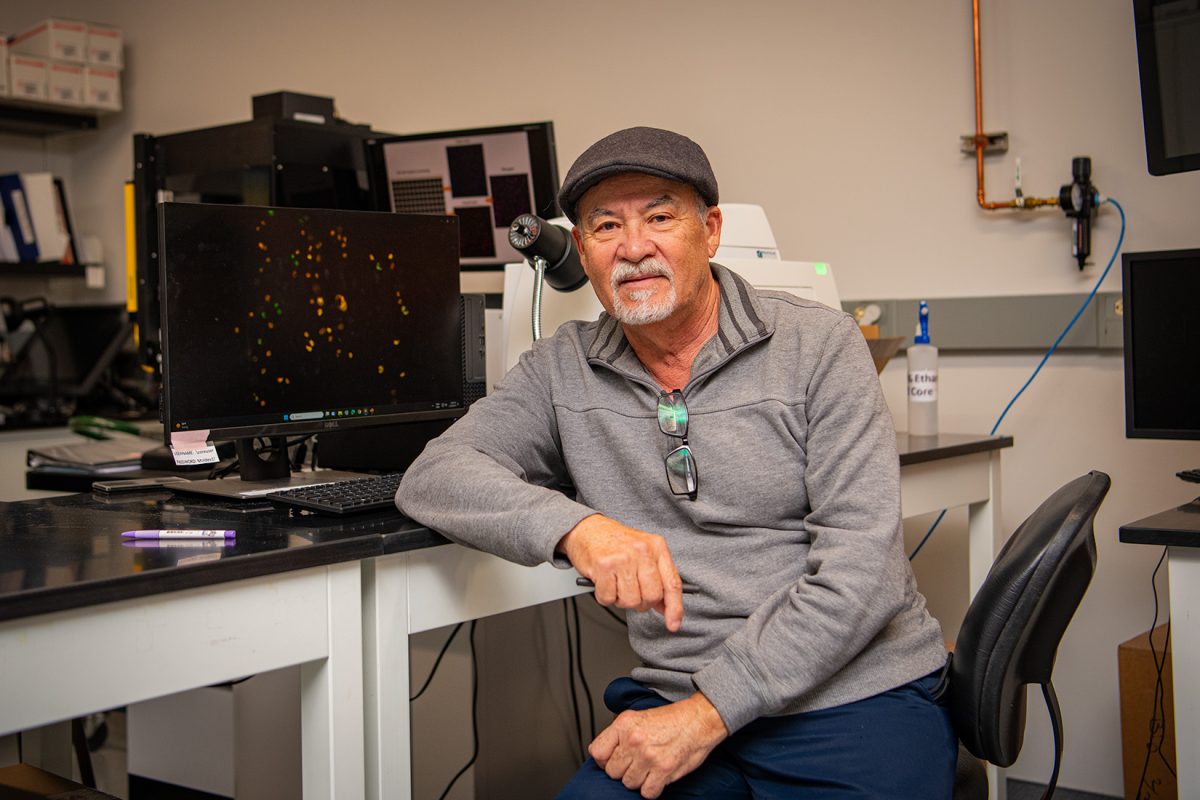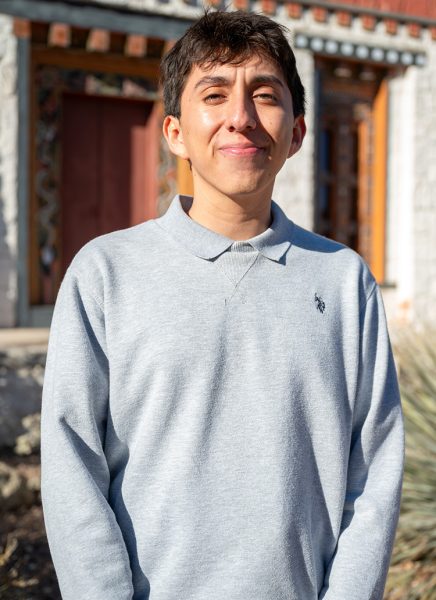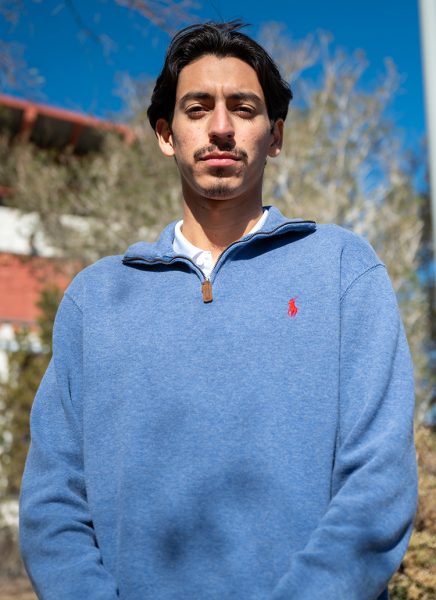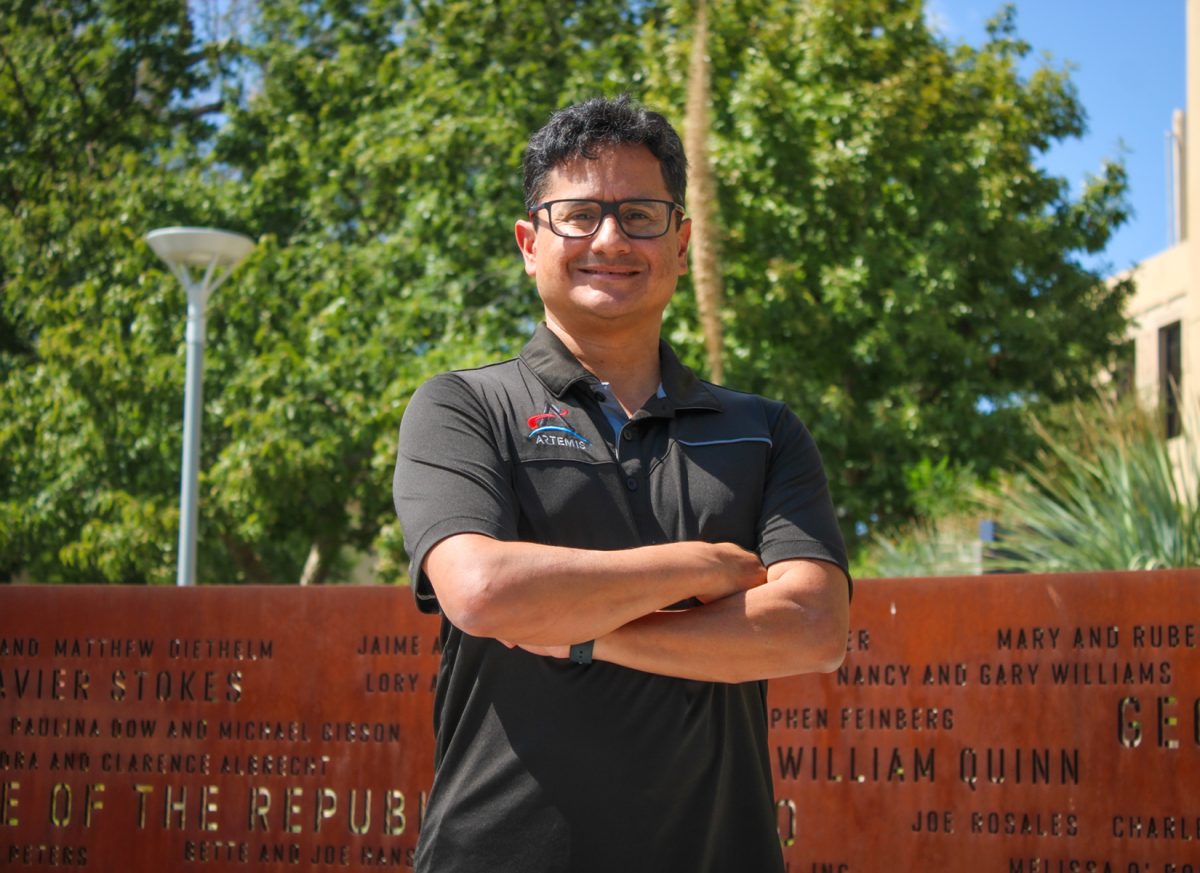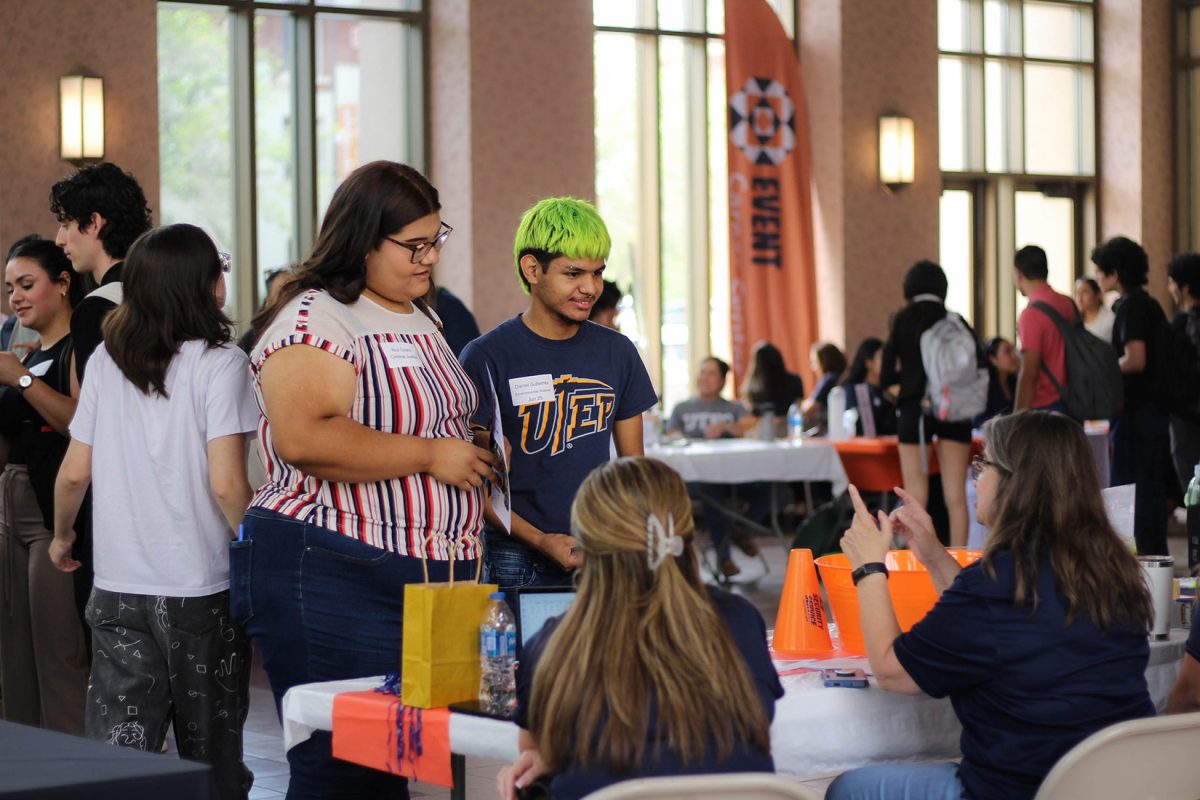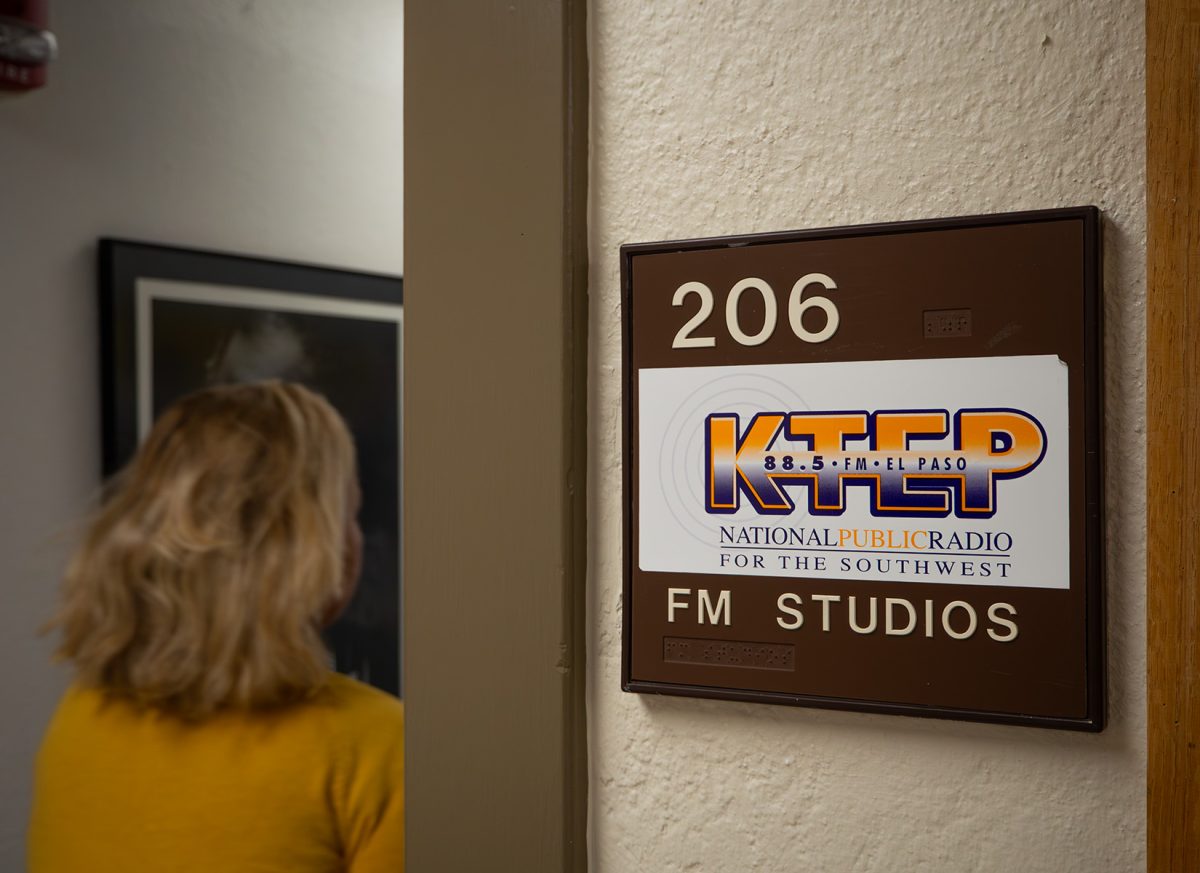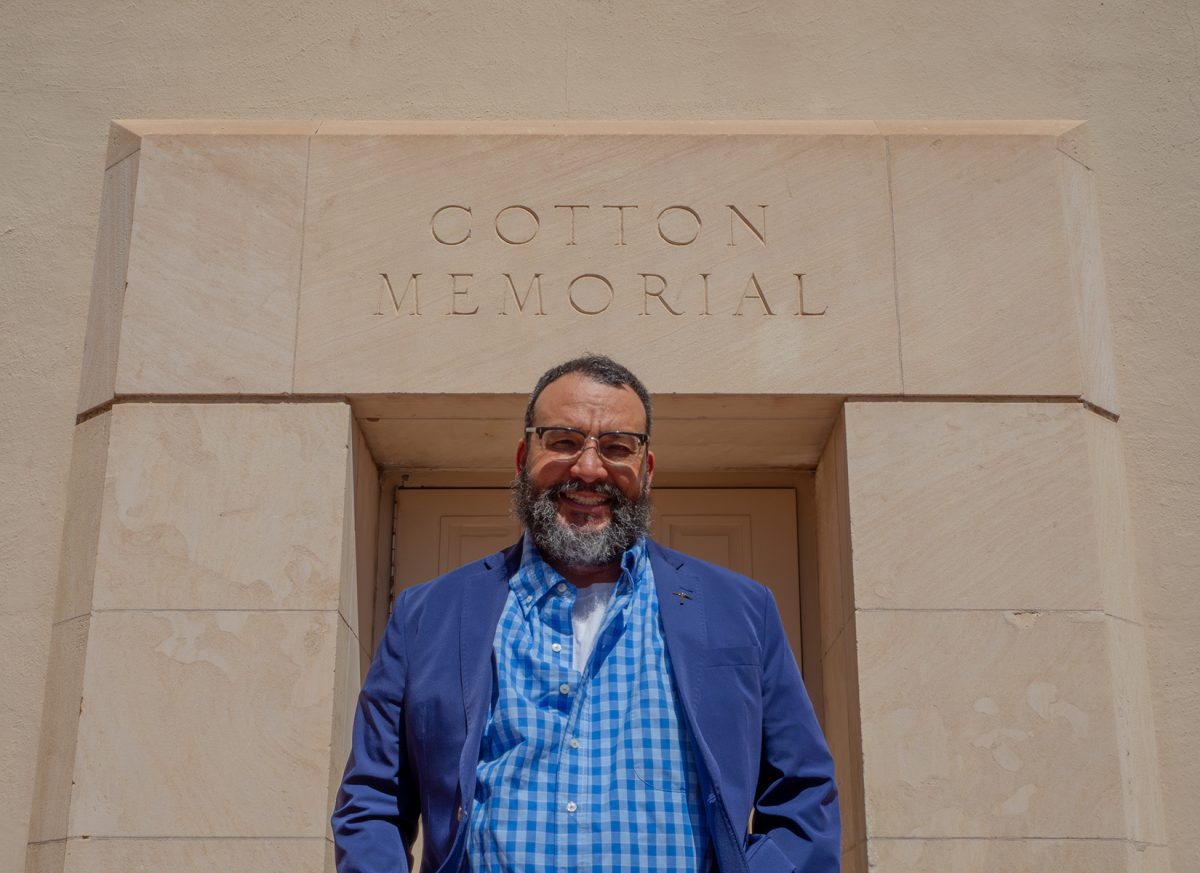In late 2007, a team of UTEP researchers began working on a drug that could potentially kill cancer cells. Their extensive research has come to a revolutionary breakthrough as Renato Aguilera, Ph.D., and a team of Ph.D. students discovered a compound that fights against leukemia and lymphoma cancer cells.
Known as Thiophene F-8, the discovery of the drug could pave the way for new forms of cancer therapy as it destroys cancer cells effectively. Aguilera and his team’s findings were published recently in a scientific journal, PLOS One.
Their latest discovery is one in a long series of discoveries that the team has made. However, this one was from a publication by graduate student, Mia Swain, Ph.D., who also did research and helped discover Thiophene F-8.
“Engaging in such a groundbreaking discovery has been fulfilling,” Swain said. “The compound’s potential to work in conjunction with existing therapies could be life-changing for leukemia and lymphoma patients.”
In their research, the team screened and tested about 1,300 compounds in a chemical library in hopes of a product that successfully destroys leukemia and lymphoma cells. Though they discovered this drug, Aguilera and his team still have more steps to take to make it more effective.
“We need to discover if the drug is specific for cancer, and it doesn’t hurt non-cancerous cells, which is the most important thing and is it published somewhere else,” Aguilera said. “Once we discover that it is a patentable drug, we use university resources to submit a patent, and then the hope is that a company will become interested in it, purchase the license for the patent, and they will do the clinical studies.”
Initial screening began in 2007, and the team started to develop the drug four years ago. Over the years, Aguilera and his team received grants and resources from the university to further improve their studies and lab.
The early stages were relatively easy for Aguilera and his team, but one of their challenges was finding a drug that could kill cancer cells and not normal cells.
“The initial development of the assay was important because without developing a relatively easy assay, it would take forever to test 20 cancer lines with one compound,” Aguilera said. “With this assay that we developed, we can screen thousands of compounds on many kinds of cancer cells.”
An assay is a process where researchers analyze a substance in cells to determine its quality. As leukemia affects the blood and lymphoma affects the immune system, this discovery could help the lives of those with this cancer.
Aguilera and his team do not plan to stop modifying their drug and others, as they hope to make it more effective and sustainable for clinical trials.
“The hope is that we will amass information on multiple drugs, including this one, that could eventually end up commercialized and tested clinically and then eventually end up in a clinical setting,” Aguilera said. “Therefore, affecting not only this community but also communities across the world that have cancer.”
With their groundbreaking discovery, Thiophene F-8 opens the doors of possibilities in the fight against leukemia and lymphoma. Further research is needed to confirm its effectiveness, but Aguilera and his team’s contributions will not go unnoticed as they have made a significant step toward cancer treatment.
Erik Acosta is editor-in-chief and may be reached at [email protected]

